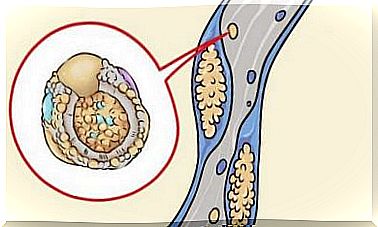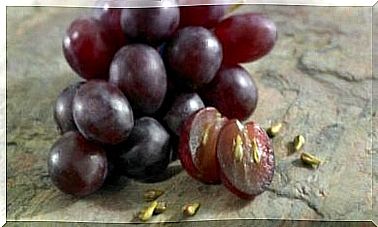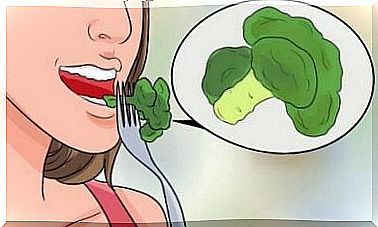6 Foods That Help Your Brain Health
Research has found that foods like broccoli have a positive effect on cognitive performance. The same goes for the egg yolk.
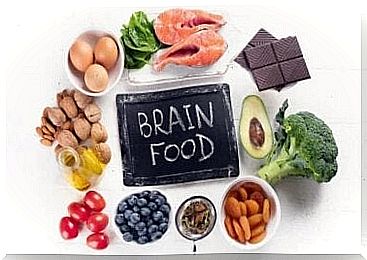
The brain is without a doubt your most precious and important organ, because it acts as the director of your body. You reason, you think, you speak, you move and finally, you live thanks to him. So, to keep your brain healthy, strong and lucid, we recommend a list of the best foods for your brain health.
The brain is the organ that allows you to feel and be aware that we are alive. Therefore, the way you take care of it will determine your quality of life. This vital organ needs a healthy diet and lifestyle, so not all foods are equally beneficial for your brain health.
Why is it important to maintain good brain health?
It is scientifically proven that people who stay physically and intellectually active have a better quality of life, are more independent, have more initiative and have better relationships. Like a muscle, the brain atrophies if it is not used.
In the same way that you need to exercise your body to keep your muscles in shape, you also need to exercise your brain. In addition to exercise, diet also plays a very important role in the care of the brain.
Foods That Benefit Your Brain Health
1. Blueberries

The red and purple fruits are an important source of polyphenols. These are substances that help fight oxidative stress. Blueberries could therefore help prevent or delay degenerative brain diseases such as Alzheimer’s disease thanks to these polyphenols, as indicated by research such as that published in 2014 in the Expert Review of Neurotherapeutics.
2. Broccoli
Broccoli is the star of vitamin K, along with Brussels sprouts and green leafy vegetables. In some studies, it has given very positive results not only in its already known and essential function in blood clotting, but also in the treatment of Alzheimer’s disease.
Research from the University of Montreal in Canada has shown that older people with a higher presence of vitamin K1 made better speeches, improved their verbal expression and had greater retention of information.
3. Oily fish and your brain health
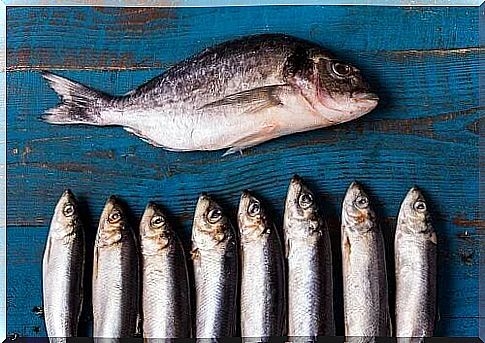
Salmon, tuna, mackerel or sardines are foods rich in omega 3 fatty acids, essential for neuronal functions. These nutrients are also effective in slowing the progression of mild cognitive impairment and may help prevent conditions such as Alzheimer’s or Parkinson’s disease.
4. Egg yolk
Egg yolk contains choline, a nutrient that belongs to the group of B vitamins. This strengthens the nerve connection of neurons. The foods that contain the most choline are eggs, red meat, peanuts, chicken, cod, milk, Brussels sprouts, garlic, among others.
According to research, increasing dietary intake of choline can lead to improvements in cognitive performance. It would also protect against memory loss.
5. Oats
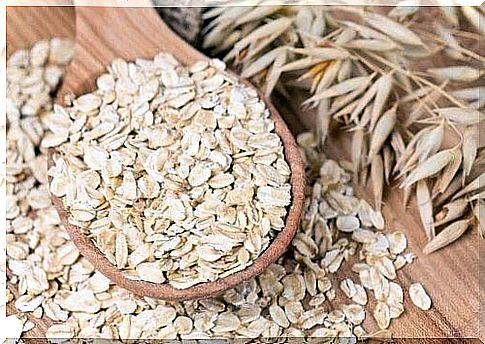
Another of the foods that should not be missing from your shopping list. Usually taken for breakfast, oats help control blood sugar and cholesterol levels. These two parameters are fundamental for the health of the brain.
In addition, oats contribute to a good balance of our nervous system because, in addition to having vitamin B1, it has properties that promote concentration and intellectual performance.
6. Dark chocolate for your brain health
Cocoa is rich in flavonoids, a natural compound with antioxidant and neuroprotective effects. This improves cognitive performance and reduces the risk of dementia. In addition, cocoa contains stimulating substances such as caffeine and theobromine which promote concentration.
On the other hand, scientific studies have shown that dark chocolate protects the brain from inflammation and neurodegenerative effects in some cases.
Of course, chocolate, like any other food, should be eaten in a balanced way, because in excess it will be harmful. Whenever possible, make sure your chocolate is dark chocolate or as pure as possible. This will prevent its properties from being altered.
We hope you are encouraged to include these foods that are beneficial for your brain health! N e also recommend doing exercises that involve a little thinking. Brain exercises will keep you clear and active despite the passage of time.

